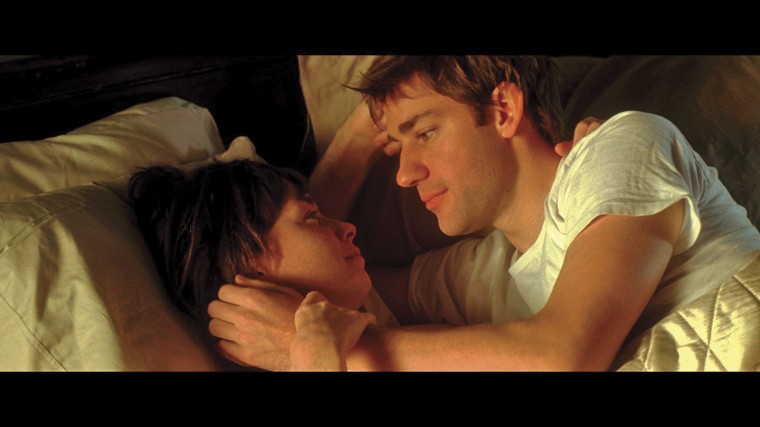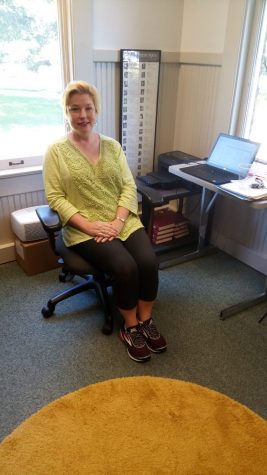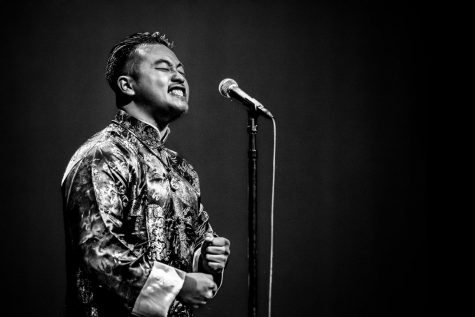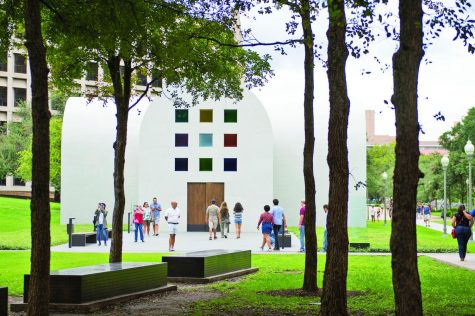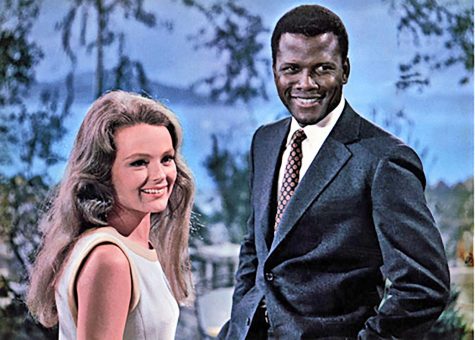Complete Question & Answer session with John Krasinski
In anticipation of the release of “Brief Interviews with Hideous Men,” our Entertainment Editors, along with a reporter from the Daily Texan, conducted a phone interview with actor John Krasinski. Read about how Krasinski made the trasition from waiting tables in New York City to staring on NBC’s “The Office” and adapting the work of one of his favorite authors to film.
Daily Texan: Why did you choose this project as your directorial debut?Krasinski: I never wanted to be a director, and who knows maybe I won’t ever do it again. But the reason why is because when I was in college I read this book, and I did a stage reading of it, and when I did that reading, without being overly sentimental, it was the moment that I decided I wanted to be an actor. I was acting just for fun with friends and having a good time, but I never intended to do it professionally. Then, I did this stage reading and it had such an impact on me, and it was so provocative. So it hit me on a pretty core level. So, to me, I owe a huge amount to this book. But the reason I wanted to direct it was two reasons actually. One, was just really to get more people to have the same experience that I had the first time I was introduced to David Foster Wallace’s work. And I just wanted to get his work on a different medium that would reach more people. So hopefully, this movie will create a bunch more David Foster Wallace fans, if I did my job right. And the other thing is, I just wanted to create a conversation. It’s a very interesting movie and an interesting book for sure. The material is definitely offensive at times and sort of provocative. It’s a movie that you wont have one opinion about. You can’t just say you like it or you don’t, there are a lot of things in there that you’ll want to talk about hopefully. There might be things you didn’t like and there might be things you did like. And I think that that’s really exciting, I really hope that people leave the theater and can’t decide what they think of the movie for a few minutes until they talk about it, so that was my big goal. Hilltop Views: So, you took the book of interviews, and you got to make up your own narrative to incorporate them for the film. How did you settle on the idea of Sara as your female lead, her break up and the graduate school research as a catalyst?K: Well when I first read the book, I don’t know why, but I just always vividly saw the character who was interviewing them as a woman. The way these guys are interacting and responding, it just felt like it was a woman. She wasn’t just asking things like “What do you feel about women?” and “What did you eat for breakfast?” She is kind of asking these more probing questions. And the reason why I think that is in response to the questions in the book, the guys are seemingly slightly uncomfortable, and in order to be uncomfortable they’re being asked things that they didn’t expect to be responding to. So that really gave me a hint that this woman was not only asking clinical questions, but more personal questions, so she may have this hidden agenda. And the cool thing was, I did get to speak to David Foster Wallace on the phone, which was incredible. And it was probably one of the best moments of my career, because he got to tell me what he was trying to do with the book. He said he was trying to write a book about a character that you never see or hear from, but through all the guys around her, you get to understand what she’s all about. And I said “Alright, so it is a girl. Fantastic!,” I basically described to him what we were doing with the script, and he said he thought we were right on. He thought that she’d be some grad student doing her dissertation on the male psyche, but there was something more to it. So, to know that we were on the right path setting out was, honestly, just an incredible feeling, honestly something I’ll never forget. DT: At the end of the movie, you use a quote from David Foster Wallace. Why did you choose that quote?K: I chose that quote for a lot of reasons. I was actually debating whether or not to sort of make reference to his death in any way. I didn’t know how I wanted to deal with it, because it’s not my right or responsibility or whatever. His work is sort of loved by so, so many people, and I just wanted to basically make that quote the tribute, not the whole movie. Because we had finished the movie before he died, and I didn’t want to make it look like I was trying to use his death or something to promote the movie. That would have been awful. So the quote, to me, was in a weird way, like a thank you to him, if that makes any sense, so, at the end of the movie, instead of just showing him as the writer of the book, he is much more than that to me in my life. So, that quote, to me, getting back to your question, after a longwinded answer, I personally believe that that is sort of the essence of what this movie is all about, and what I find is most true about his writing. And what it means to me is, the truth will set you free. Yes, you can have all those wonderful things that they tell you about since you were a little kid. That if you’re honest and you’re a good person, then all good things will come to you. But in order to be to be a good person, in order to be honest, it’s really, really difficult as we all know. I think if it was really easy to be good and to tell the truth then we’d all be doing it, we wouldn’t be getting into trouble since we were little kids. I think especially with the interviews, the guys being honest with themselves about their insecurities, and what they are scared of, and makes them feel vulnerable, is the thing at the end that makes them not hideous. The title of book is kind of ironic, because I don’t think any of these guys are truly hideous, well the guy at the end is to be sure, but you know, all of these guys are just scared and insecure, and in their insecurities they say some pretty stupid things. So, that is the longest answer I’ve ever given to a question. HV: With so many male characters in the film, did you know from the start that you wanted to play the part of Sara’s ex-boyfriend or did you ever toy with the idea of taking on another role?K: I actually was planning on not being in it at all. I was really excited, because believe it or not, I started writing this when I was still waiting tables in New York. And as inspiring as waiting tables can be, it’s not the most inspiring thing. So, I was just going out at night and seeing a lot of plays, and going to a lot of indie theaters, and seeing movies. So the people who kept me going, and kept me inspired and excited about being an actor were the people that I started thinking about when I was writing the script. So, when the day came to actually cast, I literally just went to those people who didn’t know me, but I had known them because of their work, and just told them this was what I was doing, and this was why I was coming for them. And, I actually got all the cast that I wanted, which was fantastic. So in the end, the reason why I was in the movie at all, was because an actor dropped out about two weeks before we were shooting. And the problem with that is, in this movie in particular, and especially that part, with only two weeks preparation it’s very hard to say to an actor, “memorize all these lines,” first of all, and second of all, “understand what we’re doing,” because obviously, it’s a pretty unique film experience. Like, understand what we’re doing, understand how all these guys are going to work together and understand what these actors have already done. It’s a pretty difficult task. So, I think the only thing on my resume that allowed me to do that part, was the fact that I had read the book 150 times. The producers basically said, you do understand the material, and you understand what we’re trying to do, so maybe it would be best if you did it. And, I will say it was the most terrifying performance I’ve ever done. After spending a little over a month watching some of the greatest performances I had seen, I just loved, loved, loved what everyone was doing. I just sat behind the monitor and I was giddy like a kid watching these guys work. It was like being in the audience of a play or something watching these guys work. So, it was the last scene we shot, by the way, which was terrifying because you had seen these guys do such incredible work, and now all of a sudden you’re like, “Hey I’m just going to end this thing. I’m going to take it home for you guys. Don’t worry about me.” It was very, very scary. I didn’t want that responsibility. So, in the end, I just hope I did them justice. DT: Do you relate to the men in the movie?K: God, I hope I don’t relate to any one of them in particular. Hopefully, nobody is like any one of the guys. But when you put them all together, the amalgam of all the guys, there’s definitely some truth in the way that guys think. But, parts of truth, like I said it’s a whole experience. I don’t think all guys are as predatory as some of these guys are, or that all guys are as sex-driven as some of these guys are, or as incredibly offensive as some of these guys are. But I think that we all have the potential to be a good person or a bad person at any time. I hope I’m not being idealistic, but the thing I love about the movie is it’s sort of hopeful in a way because of how honesty and truth in the movie is portrayed. All these guys at the end of the day are really insecure. They’re just really scared. They’re just not sure how to deal with women or this woman in particular, and I think it’s a very male thing that when you’re scared or nervous about one thing that you do, or one thing that you don’t do very well, you sort of overcompensate or you get that kind of like macho thing where you try to talk to someone and try and get them to believe that you’re tough or believe that you are cool, when really you’re just scared. So, I think the cool thing about the movie is these guys kind of unravel themselves. Which, let me tell you, guys can do. If you let us talk, we’ll shoot ourselves in the foot. If everyone is like these guys in a way, we’re all trying to protect the things we don’t want people to see. In the end, maybe if we were honest about the things we didn’t want people to see, we could actually make some good changes. HV: You talked about how thrilled you were with your casting choices. There are a lot of funny people in the movie like Will Arnett or Will Forte for instance, but there are also some surprises, like Ben Gibbard, Can you talk a little about your casting choices and how you got them on board? K: Sure, Ben and I were friends for a while. I see this movie as not like many movies that you see, and I don’t mean to say that to sound like I am some incredible director, it’s just a very different kind of movie. And in doing so, I just wanted to break a lot of boundaries that you find in a lot of movies. Like the whole nonlinear thing, I mean the movie is not necessarily as cohesive as say, Titanic or something like that. In the same way, I wanted to do that with casting. I wanted to put in a bunch of different guys and guys that I really admire, and I admire Ben very, very much. I just think that I wanted to give him a shot, so I called him and said, “Would you ever want to act in this movie?” and I think he was nervous about it at first, in fact he was nervous about it when he was doing it, and just afterwards too. But he just does such a great job. I think that putting people in positions and giving them the opportunity to do these things… it was really fun and really special, because you get to have people who don’t always do this stuff kind of stuff let loose and do some fun material. DT: How did you decide which parts of the book to incorporate into the movie, and which parts to elaborate on?K: I think it’s true when they say that David Foster Wallace might be unadaptable, except for this book. I think the way [the interviews] are written is very conversational. I’ve always wanted to see these things performed and have these words put in actors’ mouths. The ones I elaborated on, for instance Dominic Cooper’s character, and the reason why that was such a big part of the movie is because I think that was, when I first read the book, the most important interview to me, obviously not that I identified with it, in fact in a weird way, the reason why I think it was so powerful to me was because it was probably the one I least identified with. And then at the same time, his journey was the most moving I thought. I think that it’s representative of the book and what David Foster Wallace does, is he’ll take a character and deliver it to you as innately evil, this guy is just a bad person. And then, not by telling you in some sort of cliché way, that by the way at the end of the day, he, um, donated ten million dollars to charity every Christmas, It’s like there’s no big hook at the end, instead he just gives you a ton of information about this guy and what he’s been going through, and then in the end he reveals that he’s again just like… a scared guy. So this person who came across as pure evil is just a guy who subdues himself and just doesn’t know how to deal with life. And I think that that’s so incredibly heartbreaking and sad. So, I think that the way David Foster Wallace writes is that he gives you something and then he makes you look at it a few degrees to the right, and a few degrees to the left, and if your opinion is the same as you started with, then that’s fine, but at least you had to do the work. And I feel like that is the definition of social responsibility. The one at the end, obviously, the one that I did, was another one that was elaborated on. It’s the last one in the book, and it’s the longest one, but it was also to me, the one that seemed very personal. It seemed like he was being more aggressive to her and more manipulative to her. And, in my opinion, he’s the only character in the movie that is truly hideous. They’re insecure and they are hiding from their fears, but he knows exactly what he is doing is wrong, but he continues to do it. And that’s the only thing that’s unforgivable, so that’s kind of why I elaborated on him. And, I hope that wasn’t too long of an answer. HV: The dialogue in the film, and its delivery tend to be very theatrical in nature, all of the interviews kind of serve as monologues, and kind of maintain that feel. You yourself have a theater background, can you tell us a little about why you made that choice? K: That was all in the book, that’s how they’re written in the book for sure. I actually stayed as true as I could to David Foster Wallace’s words, I didn’t want to change them or adapt them into my own kind of dialogue. Those are literally the words from the book, which I think is why sometimes it sounds kind of literary and sometimes the guys kind of run on for a bit, which is exactly how he writes, which was sort of the exciting part of the adaptation. And then as far as my background, yeah I had a theater background a little bit at school, and I did write plays a little bit at school. But for me, like I said, it was that stage experience of seeing them done, one after another as monologues that really inspired me to do the movie.HV/DT: Thank youK: Yeah absolutely. Thanks, can’t wait to come to Austin.


